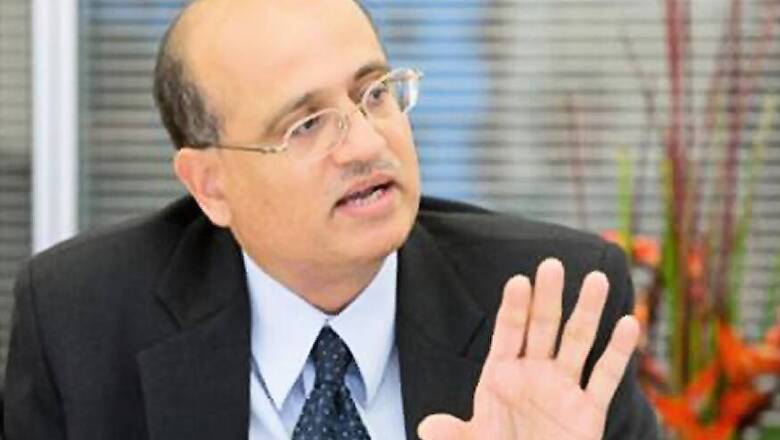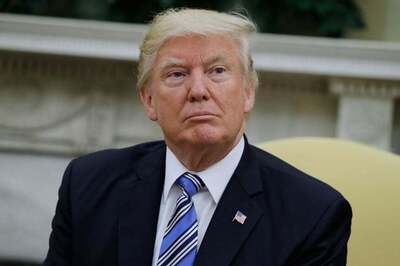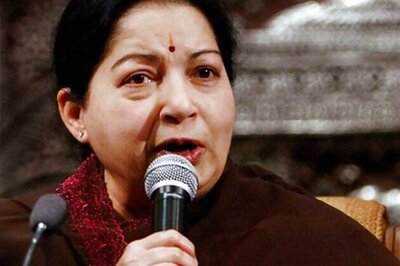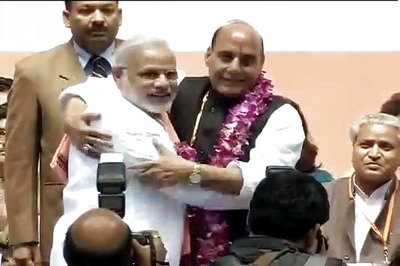
views
New Delhi: The Tibetan government-in-exile shifted a high-profile event commemorating Dalai Lama’s 60 years of exile as an effort to bringing peace to relations between India and China. The event was to be held in New Delhi till a media report said that foreign secretary Vijay Gokhale wrote to the cabinet secretary saying that participation of senior leaders and dignitaries at the event, ‘Thank You India’, is not desirable and should be discouraged, considering the ‘sensitive time.’
Many Tibetan activists are said to have communicated to relevant authorities as the development ‘humiliated’ Dalai Lama. Experts have, however, raised doubts over the development from both sides. China has been silent on the series of development from the Indian and Tibetan side so far. Speaking to News18, former Ambassador P Stobdan said that there was absolutely no question of humiliation or worry as the government was just doing as it promised.
“Dalai Lama is a refugee and Tibetans have been given the freedom to follow their spiritual allegiance. The statement from the Ministry of External Affairs saying that they stood by their stand on Dalai Lama being given all the freedom to carry out his religious activities in India is absolutely correct. There has been no commitment from our side to allow them to conduct their political/cultural events,” he said.
Soon after the media report on Gokhale’s diktat, the MEA had said that Dalai Lama was a revered leader and was deeply respected by people in India and that “there was no change in that position.”
Stobdan said that the current development was in itself a big step in foreign policy changes. “Tibet is a core issue for China. We need to understand that. Now it looks like someone finally has a grip on that,” he said.
Gokhale was India’s ambassador to China when the two Asian giants were engaged in the Doklam standoff. It is largely believed that Gokhale’s hands-on experience with the neighbour has ensured that he reaffirms India’s clear stand on Tibet.
His opinion was echoed by Alka Acharya, professor of Chinese Studies at Jawahar Lal Nehru University. “This is course-correction of sorts. Gokhale is reverting to the official and formal position taken by the government of India in its understanding with China. During his time as joint secretary in 2009, he had ensured that the government stayed away from similar celebrations,” she said.
CHINESE WHISPERS
Experts have attributed Gokhale’s use of ‘sensitive time’ as a hint to Prime Minister Narendra Modi’s upcoming visit to China for the Shanghai Cooperation Organisation. Further, the note is said to have been given out before the foreign secretary himself went to Beijing in February.
Modi government’s use of the ‘Tibet card’ has long been debated upon. In 2014, during Modi’s inauguration, head of the Tibetan government-in-exile, Lobsang Sangay, was invited. In 2016, Dalai Lama was seen with the President during a function to honour Nobel laureates. A year later, in 2017, Dalai Lama was allowed to visit Tawang for the first time since 2009, a move which did not go well with the Chinese.
Stobdan further said that people in India often considered Tibet as ‘our cause.’ “But it’s not. Tibet is a core issue for China just like Kashmir is a core issue for us. The government is well within its rights to advice its officials on those who have been refugee status,” he said.
India has, time and again, insisted that Dalai Lama was offered refuge in India on humanitarian grounds. He had fled to India during the 1959 Tibetan violence and has been living in India ever since.
The exiled Tibetan government said that it had shifted the event from Delhi to Dharamshala so that it was not a thorn in India-China relations. “We’ve lived in India for 60 years and would like to express our gratitude. But we also understand India’s position. We took relevant note of reports and decided that it would be best if we just rescheduled to event,” said Sonam Dagpo, spokesperson with the Central Tibetan Administration or the exiled government as it is called.
The move by Gokhale has, however, not gone down too well with a few others. A former deputy national security advisor said that the move only showed that India was being weak and adhering to Chinese pressure. “Tibetans are our refugees. We are clear about it but this move by the government is worrisome. Why do we need to make a statement showcasing our stand on China, if that’s what this meant? We need to be more stringent and stronger in our approach,” the former NSA said.



















Comments
0 comment